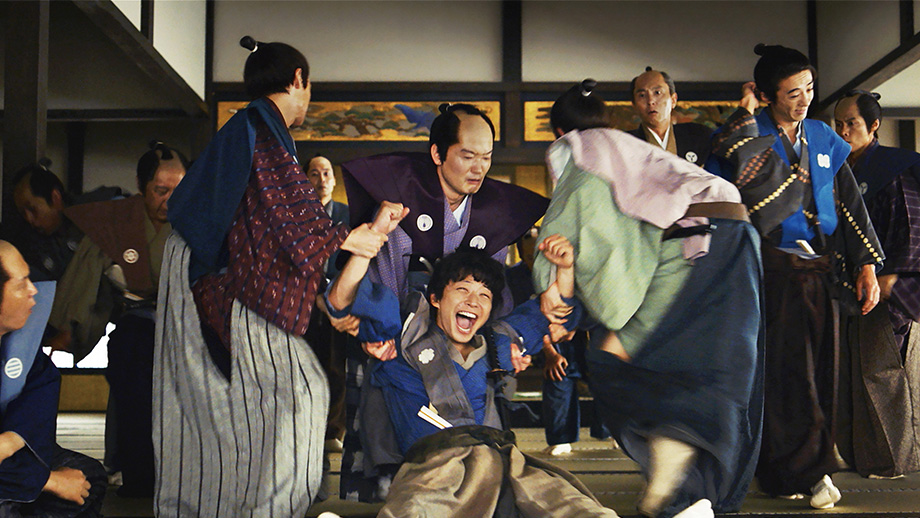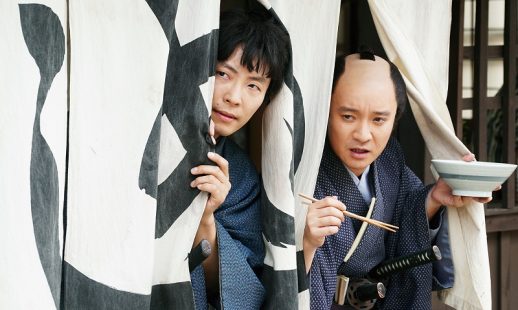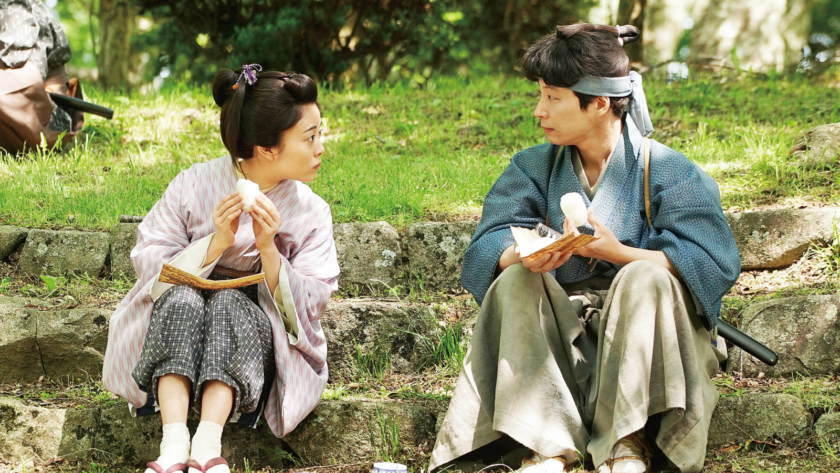Dominic Ko takes a look at a zero-to-hero samurai comedy.
“Some are born great, some achieve greatness, and some have greatness thrust upon them.” To have greatness thrust upon you does not mean that you decided to become great; rather, it means that you were put in a situation that required greatness to succeed and you rose to the challenge, becoming great in the process.
Bookish, low-profile samurai Shunnosuke Katagiri (Gen Hoshino) finds himself in that exact predicament when he is tasked by his feudal lord, Daimyo Munenori (Mitsuhiro Oikawa), to relocate his entire domain from central Japan to a southern island.
Based on a historical fiction novel, Isshin Inudo’s Samurai Shifters is set in 17th century Japan, at a time when shoguns ruled Japan with their appointed regional lords, daimyos. These daimyos had numerous samurais employed under their retainer, for administration and military power. This strict hierarchical structure reflects the salaryman work environment that still persists in Japan today. Shoguns exert their considerable influence on the daimyos, and the daimyos delegate the work to their samurais. Transposing this to a modern-day setting, a shogun would be the head of the company, with daimyos as branch leaders and samurais as the employees under the branch.

It is this parallel that makes the movie so relatable to the modern Japanese audience and for me, a prior employee in Asian organisations. When our bosses say, “Jump!”, we can only ask “How high?”.
When Katagiri is delegated the arduous task of developing an entire relocation plan with a miniscule budget, he has only two options, succeed or commit ritual suicide. As the hero of the film, Katagiri is a peculiar samurai that lacks the gallantry a typical samurai would have. Working as a librarian, he is socially inept and prefers the company of books over people. However, it is because of his profound knowledge and resourcefulness that he is chosen to accomplish this seemingly impossible mission.
With the help of his hot-headed samurai buddy Takamura (Issei Takahashi), and Oran (Mitsuki Takahata), the widowed daughter of the former relocation officer, he develops a plan to relocate his clan. Through shrewd strategies and humility, Katagiri gradually wins his clan’s respect and gains the confidence to lead their move.

As with all samurai films, there is an obligatory sword-fighting action sequence at the climax of the film, which felt slightly prolonged for me and added little to the narrative. However, Samurai Shifters does break conventional samurai movie tropes by acknowledging a little known aspect of samurai culture, nanshoku relationships — homo-eroticism between a senior partner and an adolescent male. Apparently, the reason behind Damiyo Munenori’s sudden relocation and demotion is that he has rejected a sexual invitation from a close advisor to his shogun. I found that to be a refreshing inclusion, and a subtle analogy for the sexual harassment prevalent in contemporary Japanese workplaces.
The movie is largely light-hearted and comedic, with the satisfying, playful performances of Gen Hoshino, a prolific singer-songwriter in Japan, and lead actor in the hit romantic-comedy TV serial, We Married as a Job. He does a superb job of portraying a sincere leader, moving others with his humility and earnestness. His character serves as a stand-in for the salaryman audience and teaches us principles of authentic leadership such as loyalty, empathy, sacrifice and compassion.

Another aspect of the film I enjoyed was the meticulous costume design. The prints and colours of the outfits are thoughtfully chosen. The different samurai attire communicates details of each character’s personality to the audience, and outlines their dramatic arc. For example, proud, boastful advisors to the daimyo have pronounced, broad kataginu (shoulder vests). Conversely, our lead, Katagiri starts the movie with narrow, shelled shoulder vests, which slowly develop into his own set of small wings as he grows more confident in his abilities and rises in power.
An enjoyable zero-to-hero film, Samurai Shifters is an easy-to-watch, straightforward period comedy that simultaneously reflects on contemporary workplace culture. The films curated by the Japan Foundation Touring Film Programme have been selected to showcase certain aspects of Japanese culture and highlight issues that might resonate with international audiences. Samurai Shifters is a fitting choice as it presents the strength of Japanese collectivism amidst adversity, while mocking the stuffy hierarchical structure that remains prevalent in Asian organisations.
7/10
You can catch a screening of Samurai Shifters on Monday 8 March. Book your ticket via this link:
https://onlinecinema.jpf-film.org.uk/film/samurai-shifters-repeat/




